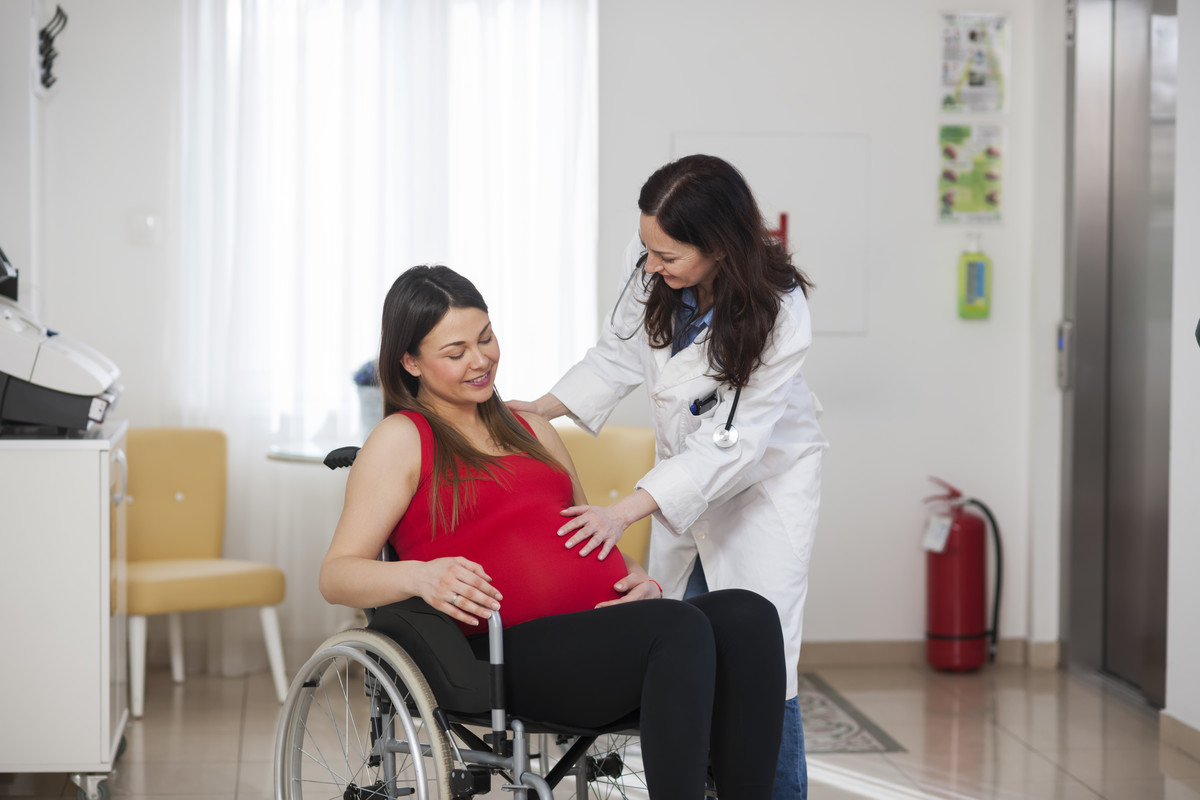news release
Wednesday, December 15, 2021
Pregnant women with disabilities are at much higher risk of serious pregnancy- and childbirth-related complications and death than other pregnant women, according to a study by researchers at the National Institutes of Health. The study, published in JAMA Network Open, analyzed more than 223,000 births at 19 U.S. hospitals and found that about 2,199 women had disabilities.
“Further research is needed to understand the causes of this increased risk and develop interventions needed to reduce it,” said lead author Jessica L. Gleason, PhD, of NIH’s Eunice Kennedy Shriver National Institute of Child Health and Human Development.
Disabilities include physical disabilities (affecting mobility, ability and dexterity), sensory disabilities (affecting sight, hearing, taste, touch and smell) and intellectual disabilities. Compared to women without disabilities, women with disabilities are more likely to:
These include more than double the risk of severe preeclampsia (a potentially life-threatening hypertension caused by pregnancy), a 48% higher risk of mild preeclampsia, a 25% higher risk of gestational diabetes, a 52% higher risk of placenta previa (where the placenta covers all or part of the cervix), a 16% higher risk of premature rupture of the membranes, a 27% higher risk of bleeding, an 11-fold higher risk of maternal death, more than six-fold higher risk of thromboembolism (blood clots in the veins of the lungs or legs), a four-fold higher risk of cardiovascular events (heart attacks and other problems with the heart or blood vessels), a nearly three-fold higher risk of infection, and a 33% higher chance of being given the drug oxytocin to induce labor and of being delivered with forceps, a vacuum extractor, or other instruments to remove the baby, or of having a cesarean section.
Although women with disabilities have similar pregnancy rates to women without disabilities, they have a higher rate of health risk factors than women without disabilities. Previous studies have shown that women with disabilities are at higher risk of pregnancy complications, such as preterm birth, pregnancy-induced hypertension, gestational diabetes, and cesarean section. However, little was known about the risk of these serious pregnancy complications in women with disabilities.
The authors note that women with disabilities are more likely to be poor, which may make it harder for them to access timely medical care. People with physical disabilities may also have difficulty accessing medical facilities. Other factors that may increase health risks include higher rates of smoking, drug use, and depression.
About the Eunice Kennedy Shriver National Institute of Child Health and Human Development (NICHD): NICHD leads research and training to understand human development, improve reproductive health, enhance the lives of children and adolescents, and optimize the capabilities of all people. For more information, visit https://www.nichd.nih.gov.
About the National Institutes of Health (NIH): NIH is the nation’s medical research agency, comprised of 27 Institutes and Centers, and is part of the U.S. Department of Health and Human Services. NIH is the primary federal agency conducting and supporting basic, clinical, and translational medical research, investigating the causes, treatments, and cures for both common and rare diseases. For more information about NIH and its programs, visit www.nih.gov.
NIH…Transforming Discovery into Health®
References
Gleason, JL, et al. Risk of Adverse Maternal Outcomes in Pregnant Women with Disabilities. JAMA Network Open. 2021.

